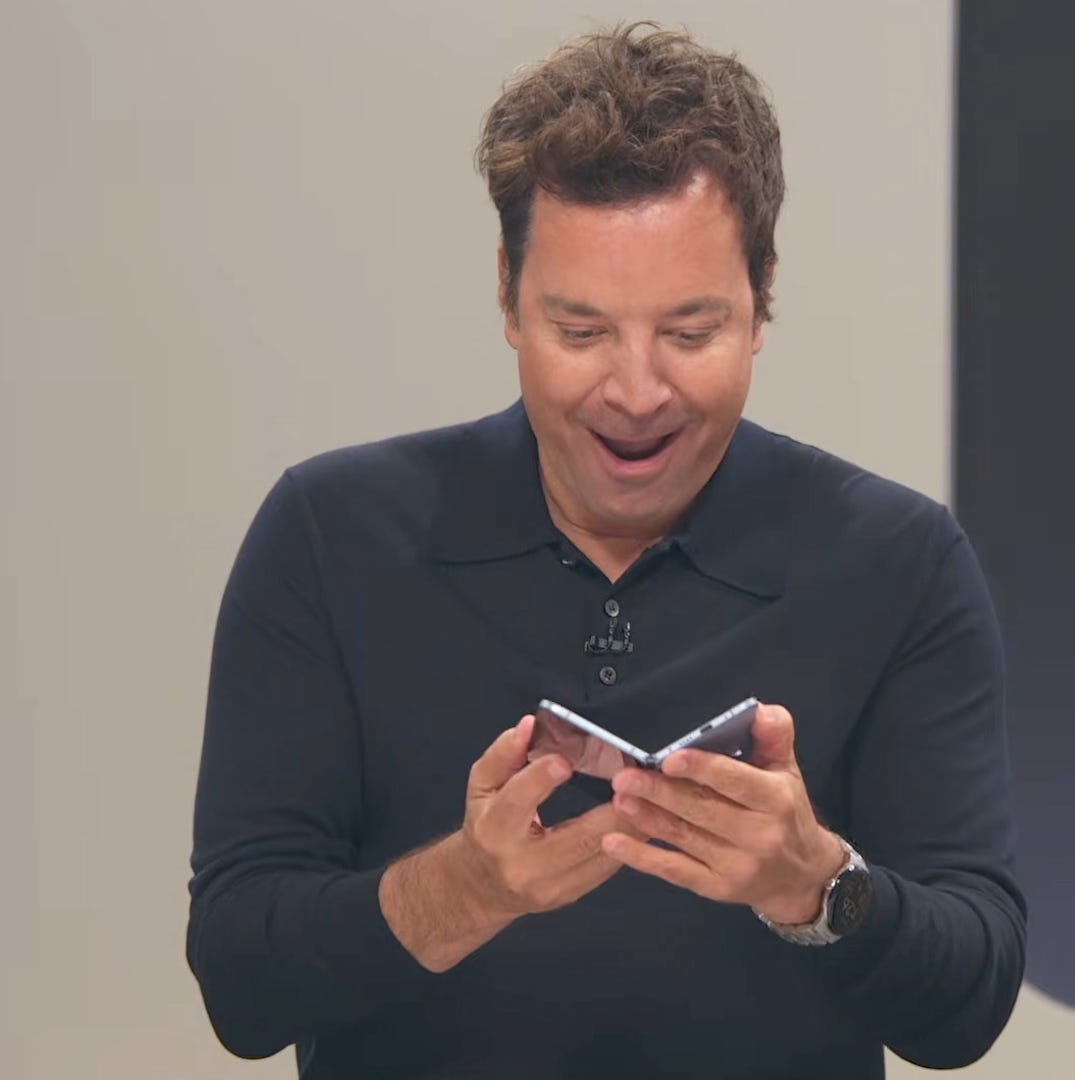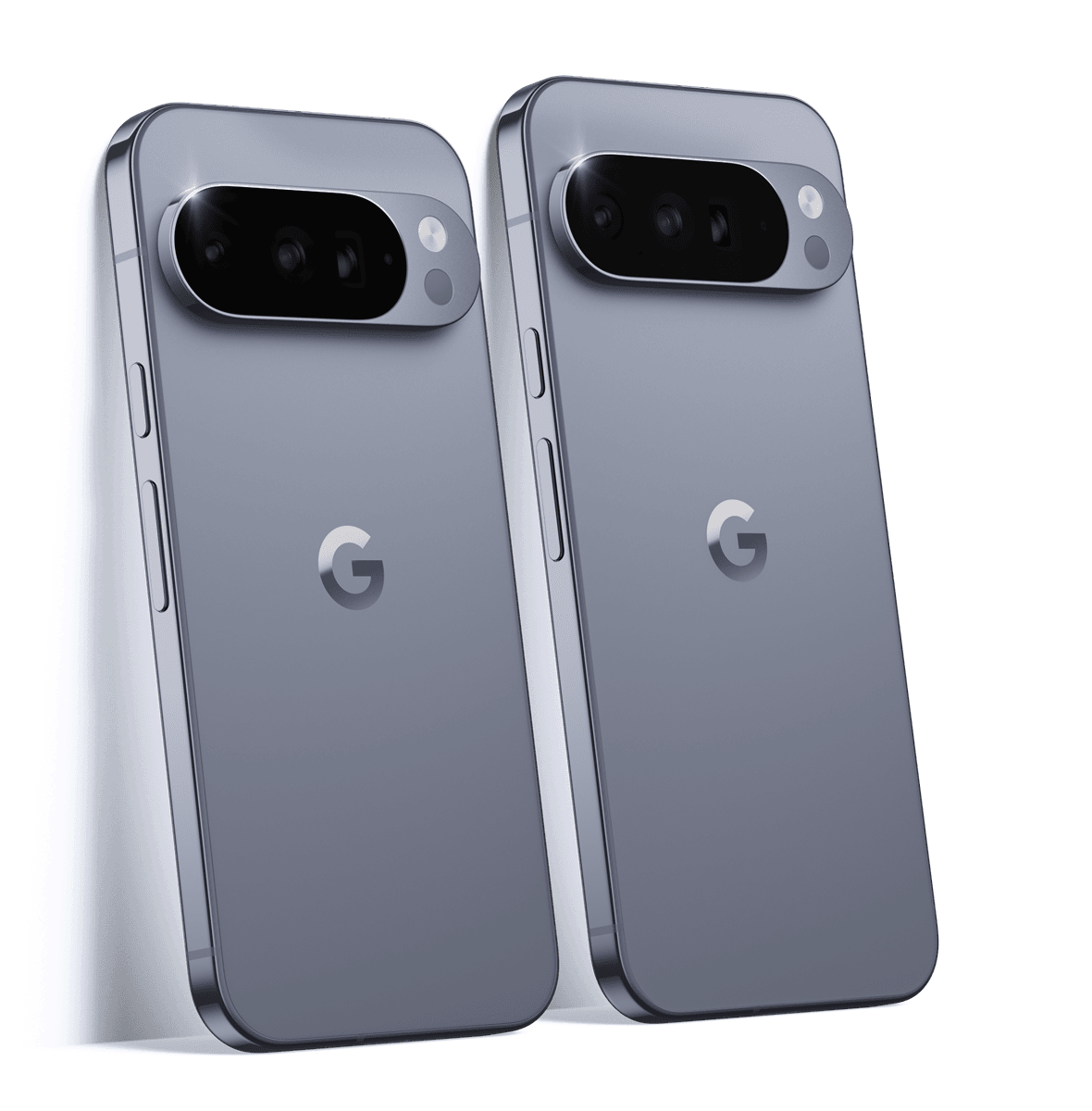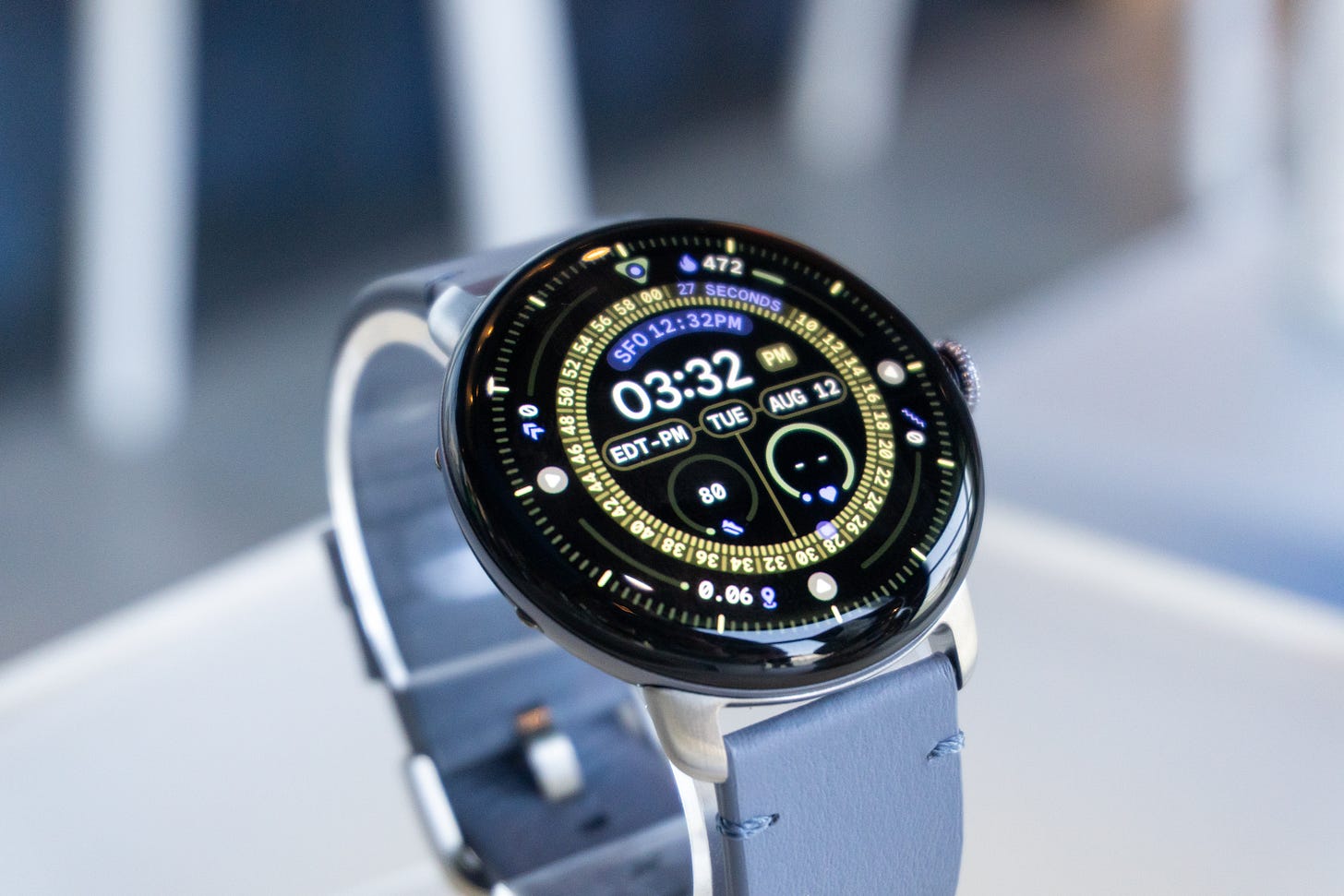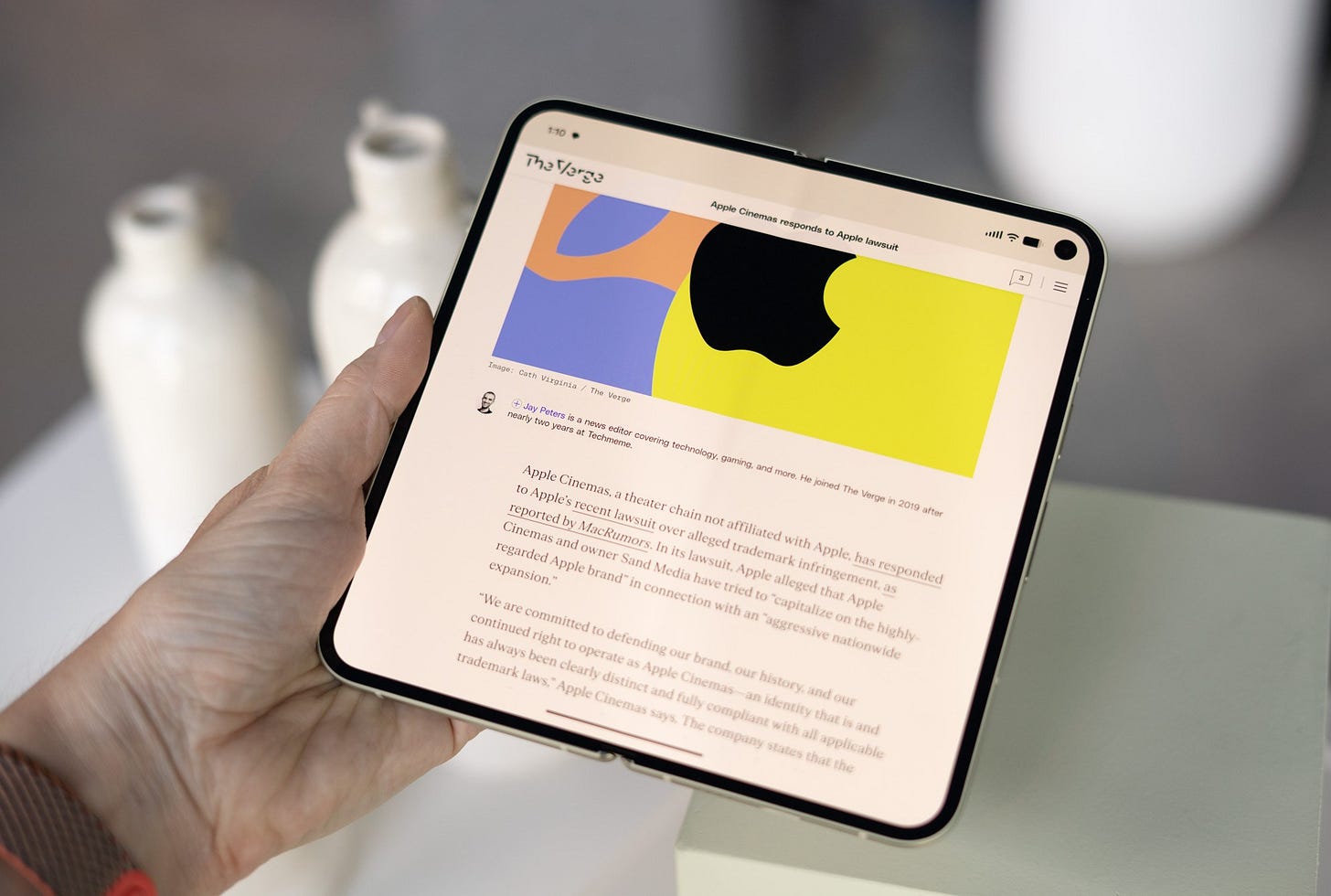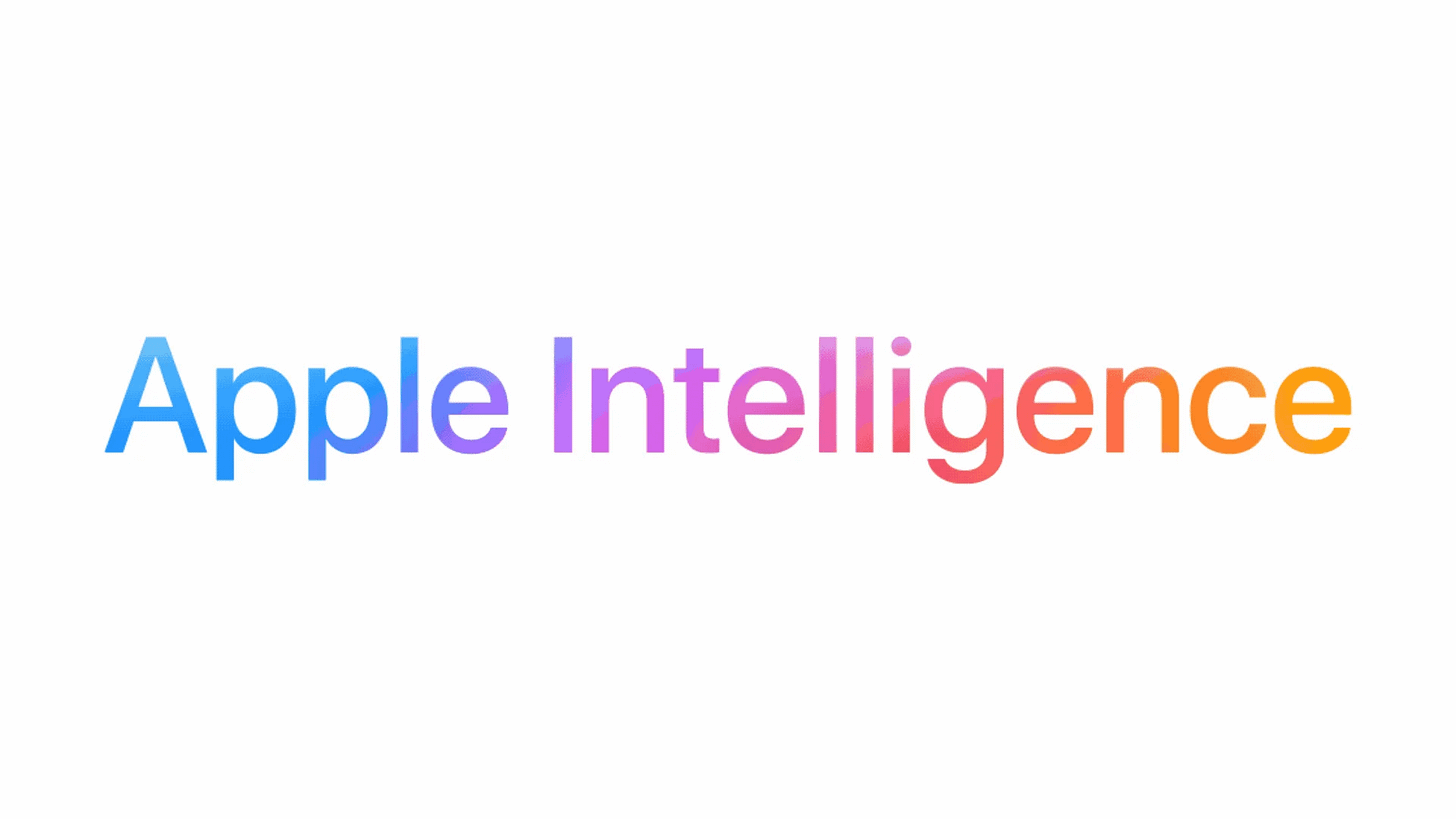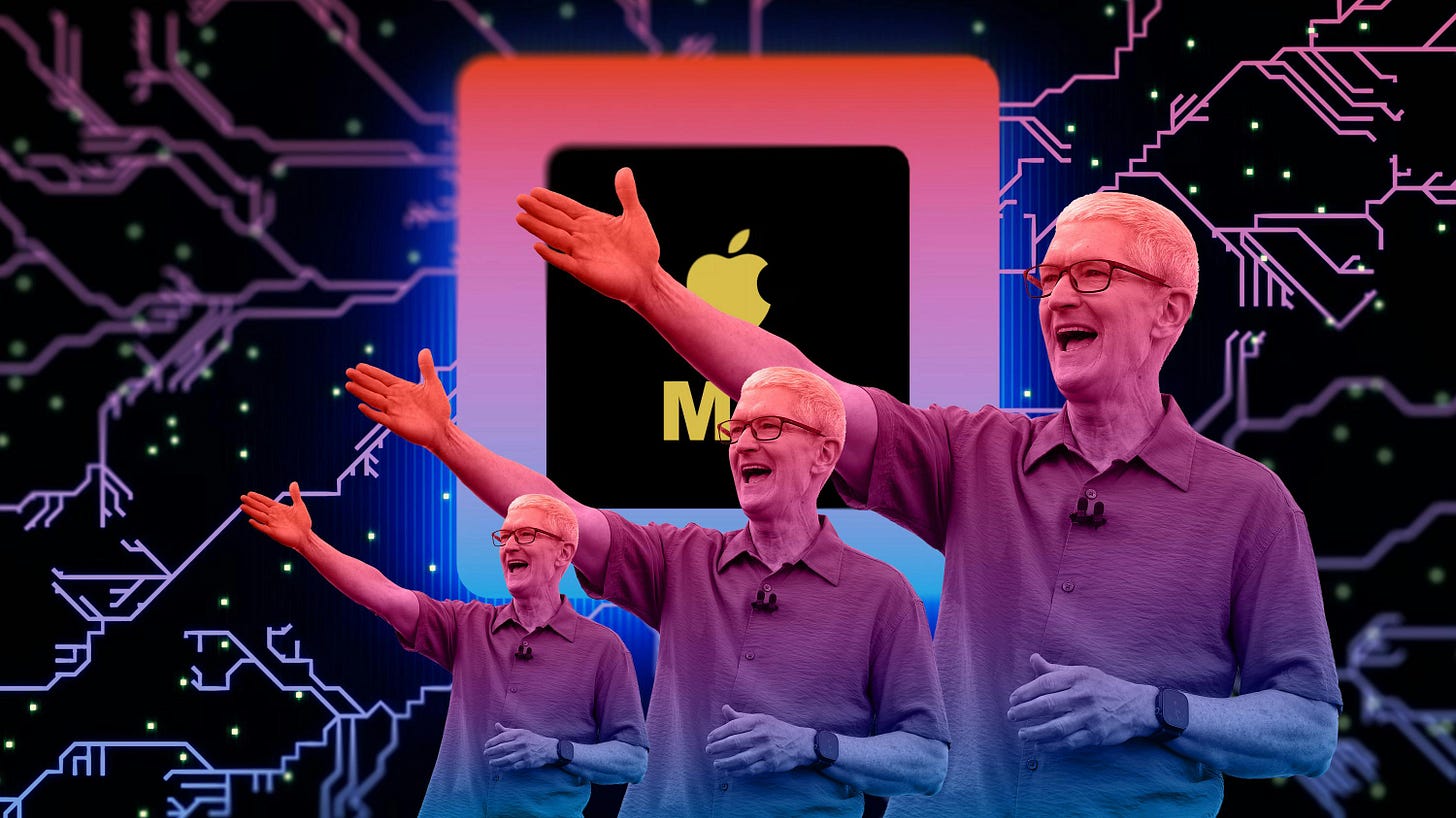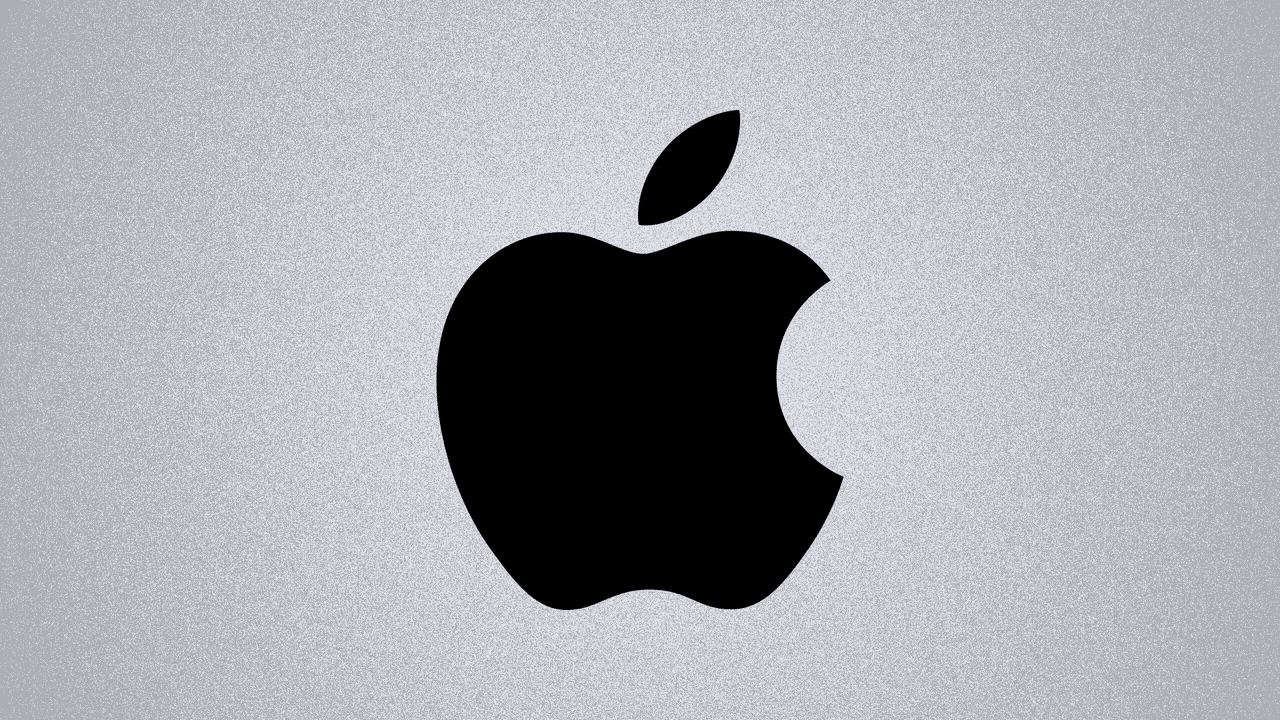
AI: Google Pixel's AI Challenge to Apple iPhone+ empire. RTZ #821
Google rolled out its tenth anniversary Pixel phones, latest Pixel Fold, and other wearables yesterday, and the event was even hosted by Jimmy Fallon. That’s a new level of Hollywood production values to counter a similar effort by Apple of late in its product launches. The new launch of course pre-empts Apple’s upcoming launch of its new 2025 iPhone 17, and other devices next month. And despite all the focus on the individual features of note in the various Google Pixel phones, and wearable devices, the longer aim was on Apple.
And that’s of course because the two companies currently rule the world’s smartphone market between Android and iPhones. Even China, the world’s other big smartphone market uses Android variants for the most part. Despite their own indigenous efforts by Huawei and others to create their own smartphone operating systems like Harmony OS and others.
So the Google vs Apple smartphone framing makes sense. They already compete head to head on Voice AI with Gemini Voice and Siri today, even more its LLM AI revamp coming soon. And the global smartphone market including hardware and software already totals almost half a trillion a year, surpassing even AI the almost $400 billion in AI investments and revenues in these early days of the AI Tech Wave.
So rather than focus on the Google Pixel and wearable features which are covered in some of the links above, thought it’d be more useful to focus on the Google Gemini AI capabilities being packed into the Google phones. Now many of these features will be available for free via software upgrades soon to all Android phone users. But there are some here that are enabled by Google’s new Tensor chip and related enhanced hardware for the Pixel 10 phones, so they’re exclusive to this new launch. And that includes the new Google Pixel 10 Pro Fold phone, with true water and dust protection in the wild. Also Google now has PixelSnap, its answer to the iPhone’s MagSafe accessories kingdom.
Axios summarizes the software focus of Google vs Apple phones well in “Google puts pressure on Apple with AI-packed Pixels”. :
“Google’s new Pixel 10 lineup includes new AI-powered features that put significant pressure on Apple ahead of its expected iPhone launch next month.”
“Why it matters: The high-end smartphone market is largely saturated, meaning each sale comes from either convincing a loyal user to upgrade or wooing someone away from a competitor.”
“Driving the news: Google on Wednesday updated its lineup of Pixel smartphones, including more powerful zoom cameras and the latest Tensor processor, while also delivering a new watch and earbuds.”
But the key features are the AI software inside:
“The biggest changes, though, were on the software side, where Google is using generative AI to power new experiences, including photography assistance, more natural sounding translation and proactive help using on-device AI.”
“The big picture: Google is plowing forward on the AI front, while Apple is still struggling to deliver on the Apple Intelligence features it promised last year.”
I disagree with that narrative, and believe Apple has intense plans to compete on AI from the bottom up throughout its ecosystem.
“A more capable Siri — the most important of Apple’s promised AI features — has already been delayed until next year.”
“Meanwhile, the AI features Apple has promised for the fall are far more modest than what Google announced Wednesday.”
Axios outlines four key AI software features via Google Gemini:
“Zoom in: Four new features stand out for their utility — and the pressure they put on Apple.”
”Magic Cue”
“Magic Cue is Google’s umbrella term for proactive suggestions in Messages, Gmail and Calendar.”
“For example, Magic Cue can pop up in a text message thread about dinner plans to remind you of the reservation details.”
“Magic Cue uses the Gemini nano AI model that runs on the Pixel phones themselves, instead of in the cloud.”
“On-device AI has advantages when it comes to speed, cost and privacy.”
“Expect more features like this from Google and its rivals.”
I like where Google is going with ‘Magic Cue’. They’re capabilities Apple is also focused on, although they don’t call out as AI in flashing lights.
Next up,
“Camera Coach”
“Google has been using AI to improve photos for a decade, but this year’s “Camera Coach” advances go beyond enhancing images after they’re taken to offer help with framing and other core techniques key to good photography.”
“Pixel 10 also lets users edit photos with voice or text prompts.”
Voice editing of photos using AI/ML is cool. There Google likely has a current leg up with Gemini AI in its hardware and software.
Next up is
“Voice translation”
“While Samsung and others are offering real-time language translation, the new Pixels take this a step further by serving up the translated audio in a voice that sounds quite like the original speaker.”
This is always a great tech deno. Although not as useful in real life on a daily basis. How many times a year hae we struggled to communicate with someone across languages? Although I agree Voice AI offers great promise to a Star Trek Universal Translator capability soon.
And finally, the practical one:
“Content credentials”
“Pixel 10 phones are the first to automatically embed content credentials into every photo.”
“The metadata shows when and how the image was captured, plus any edits, and whether they were made with AI.”
“What’s next: The pressure is on Apple to either step up its software game or deliver hardware so compelling that customers overlook its AI stumbles.”
“Go deeper: Learn more about the new Google devices.”
The above is a good overview on the bottom up AI software focus that Google is trying to bring across its ecosystem.
And a good challenge to the only other company on the planet that has an equivalent opportunity to match and perhaps surpass AI capabilities bottom up across their ecosystem of platforms.
As I’ve articulated, I believe Apple is more than up to the challenge and opportunity, despite related dents on its AI Talent ranks by Meta and others.
The AI Devices age has barely gotten started. OpenAI’s $6.5 billion stock merger with former Apple Uber designer Jony Ive’s company is of course another opening shot here I’ve talked about.
All this rolls out over the next couple of years by not just these companies but Amazon, Meta and a whole host of others. Despite the challenges of scaling hardware with the current trade and tariff issues with China.
But the game is afoot here, and for now Google and Apple are the ones to watch this AI Tech Wave going into September. Stay tuned.
(NOTE: The discussions here are for information purposes only, and not meant as investment advice at any time. Thanks for joining us here)

